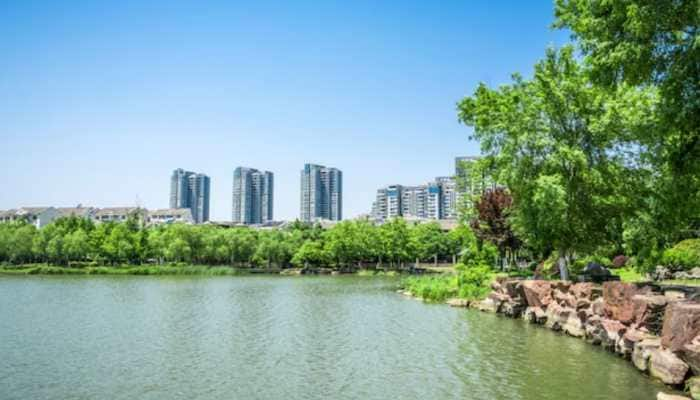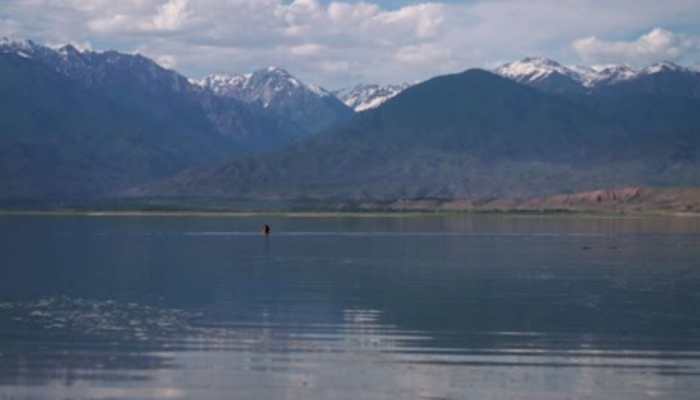Vijay Mallya, Lalit Modi discussed as PM Narendra Modi raises issue of economic offenders with Theresa May
PM Narendra Modi met Theresa May at her official residence - 10, Downing Street in London.
Trending Photos
) Image Credit: Twitter/UK PM
Image Credit: Twitter/UK PM LONDON: Prime Minister Narendra Modi on Wednesday raised the issue of economic offenders like Lalit Modi and Vijay Mallya who have sought refuge in Britain during his one-to-one meeting with his British counterpart Theresa May. PM Modi met May at her official residence - 10, Downing Street.
Reports quoting Foreign Secretary Vijay Gokhale said that the two leaders discussed the issue of extradition of absconding liquor baron Vijay Mallya and former IPL founder Lalit Modi during their meeting at the 10, Downing Street here.
During their meeting, PM Modi told his British counterpart that there would be no dilution in the importance of the UK to India after it leaves the EU as the two leaders agreed to infuse ''new energy'' into bilateral ties post-Brexit.
The two leaders had "fruitful discussions" on multiple aspects of India-UK relations and issues like counter-terrorism, radicalisation and online extremism, according to official statements issued by the two sides.
Modi, who arrived at the 10, Downing Street for a breakfast meeting, was greeted with the customary handshake by May. "Very welcome to London, Prime Minister," May said as she greeted Modi.
"Wonderful meeting with Prime Minister @theresa_may at 10, Downing Street. We had fruitful discussions on multiple aspects of India-UK relations," Prime Minister Modi tweeted after the meeting.
Wonderful meeting with Prime Minister @theresa_may at 10, Downing Street. We had fruitful discussions on multiple aspects of India-UK relations. @10DowningStreet pic.twitter.com/Xugz1PwwQ3 — Narendra Modi (@narendramodi) April 18, 2018
Ministry of External Affairs spokesperson Raveesh Kumar said the two leaders had wide-ranging talks on redefining and infusing new energy into the bilateral engagement post-Brexit.
A warm welcome and a fire-side discussion! PM @narendramodi welcomed by @theresa_may @10DowningStreet. The two leaders had wide-ranging talks on redefining and infusing new energy into our bilateral engagement post-Brexit. pic.twitter.com/mj1a4addM3 — Raveesh Kumar (@MEAIndia) April 18, 2018
Brexit refers to the UK's decision in a June 23, 2016 referendum to leave the 28-nation European Union (EU).
A statement issued by 10 Downing Street after the meeting said that the Syria air strikes, counter-terrorism, radicalisation and online extremism were among some of the key topics covered by both leaders.
"Prime Minister Modi said there would be no dilution in the importance of the UK to India post-Brexit. He said the City of London was of great importance to India for accessing the global markets and would remain so," a Downing Street spokesperson said.
"The Prime Minister (May) updated Prime Minister Modi on the progress of the UK's withdrawal from the EU, saying the implementation period agreed in March gives Indian companies and investors the confidence that market access will continue on current terms until the end of 2020," the spokesperson said.
The two leaders said trade between the UK and India had grown strongly over the last year and agreed to build on the recommendations of the UK-India Joint Trade Review to reduce barriers to trade, to make it easier to do business in both countries and enable a stronger bilateral trade relationship for the future.
May and Modi discussed a new UK-India Tech Partnership, which will create thousands of jobs and generate significant investment in both our economies.
The two leaders agreed to strengthen cooperation to take decisive and concerted actions against globally-proscribed terrorists including Lashkar-e-Tayibba, Jaish-e-Mohammad, Hizb-ul-Mujahideen, Haqqani Network, Al Qaeda, ISIS and their affiliates, as well as tackling the online radicalisation and violent extremism which feeds this, it added.
The UK and India will also work together to tackle threats such as piracy, protect freedom of navigation and open access, and improve maritime domain awareness in the region.
The two sides also agreed further enhance cooperation to promote international security and stability in cyberspace.
According to official estimates, India-UK bilateral trade stands at USD 13 billion, with the UK among the largest G20 investors in India.
(With Agency inputs)
Stay informed on all the latest news, real-time breaking news updates, and follow all the important headlines in india news and world News on Zee News.
Live Tv







)
)
)
)
)
)
)
)
)
)
